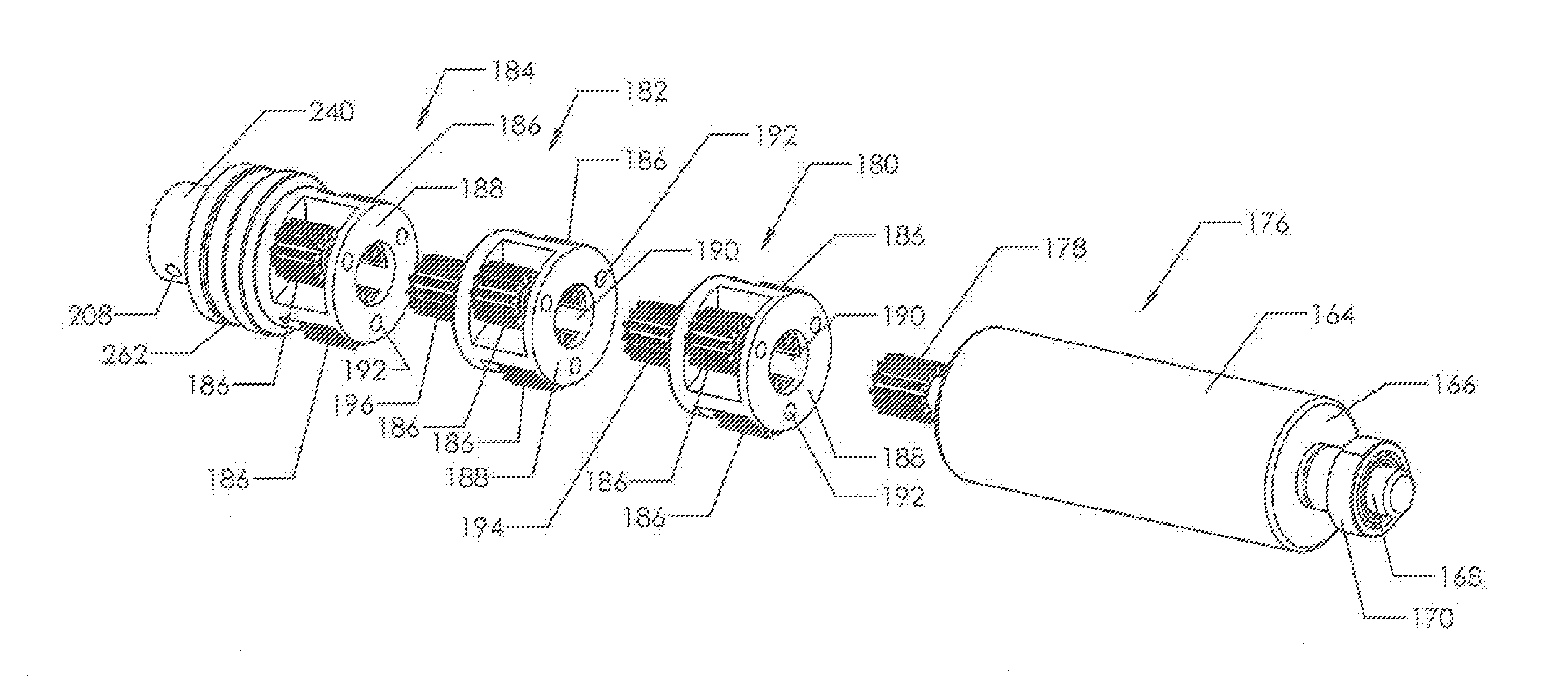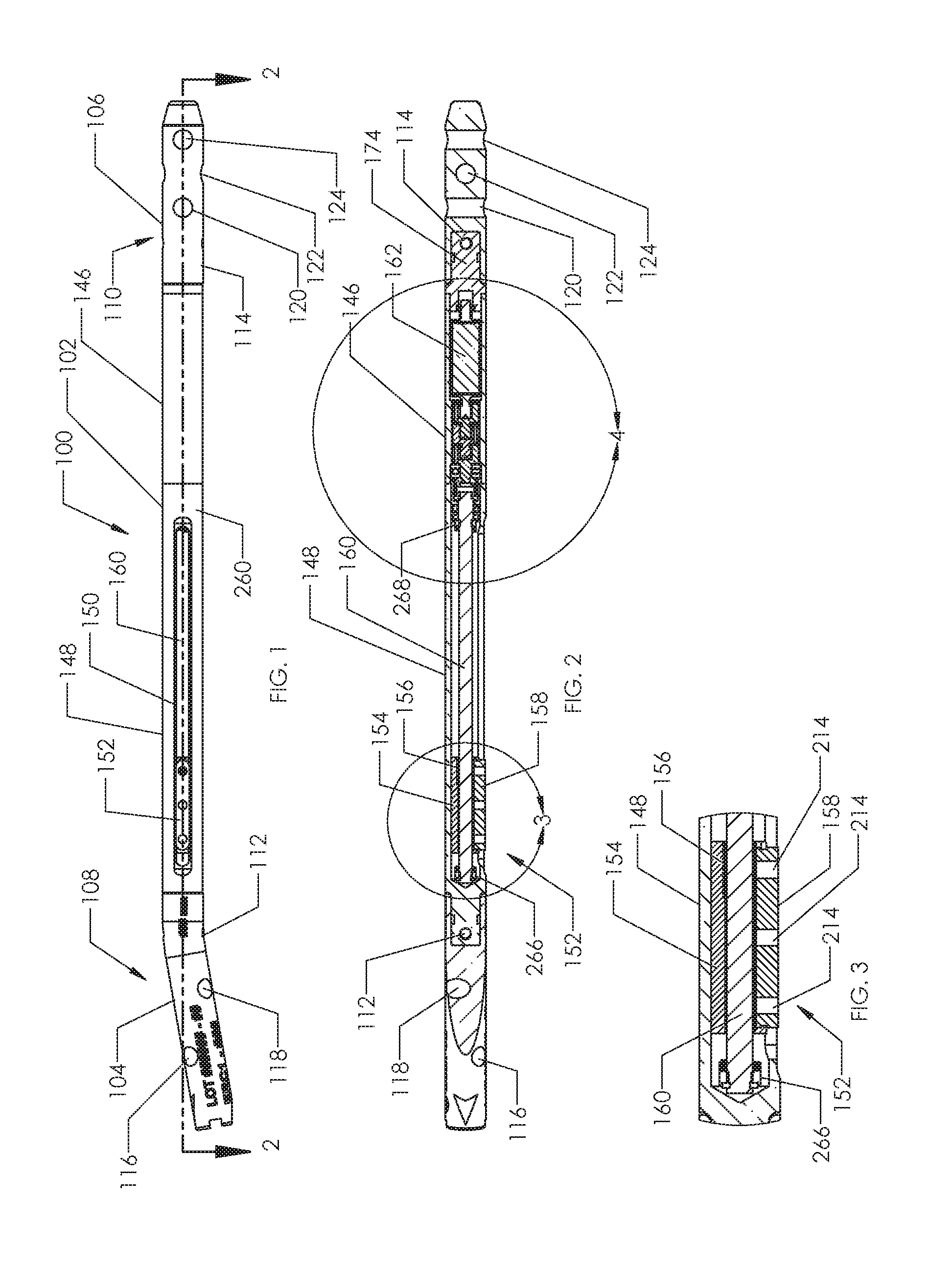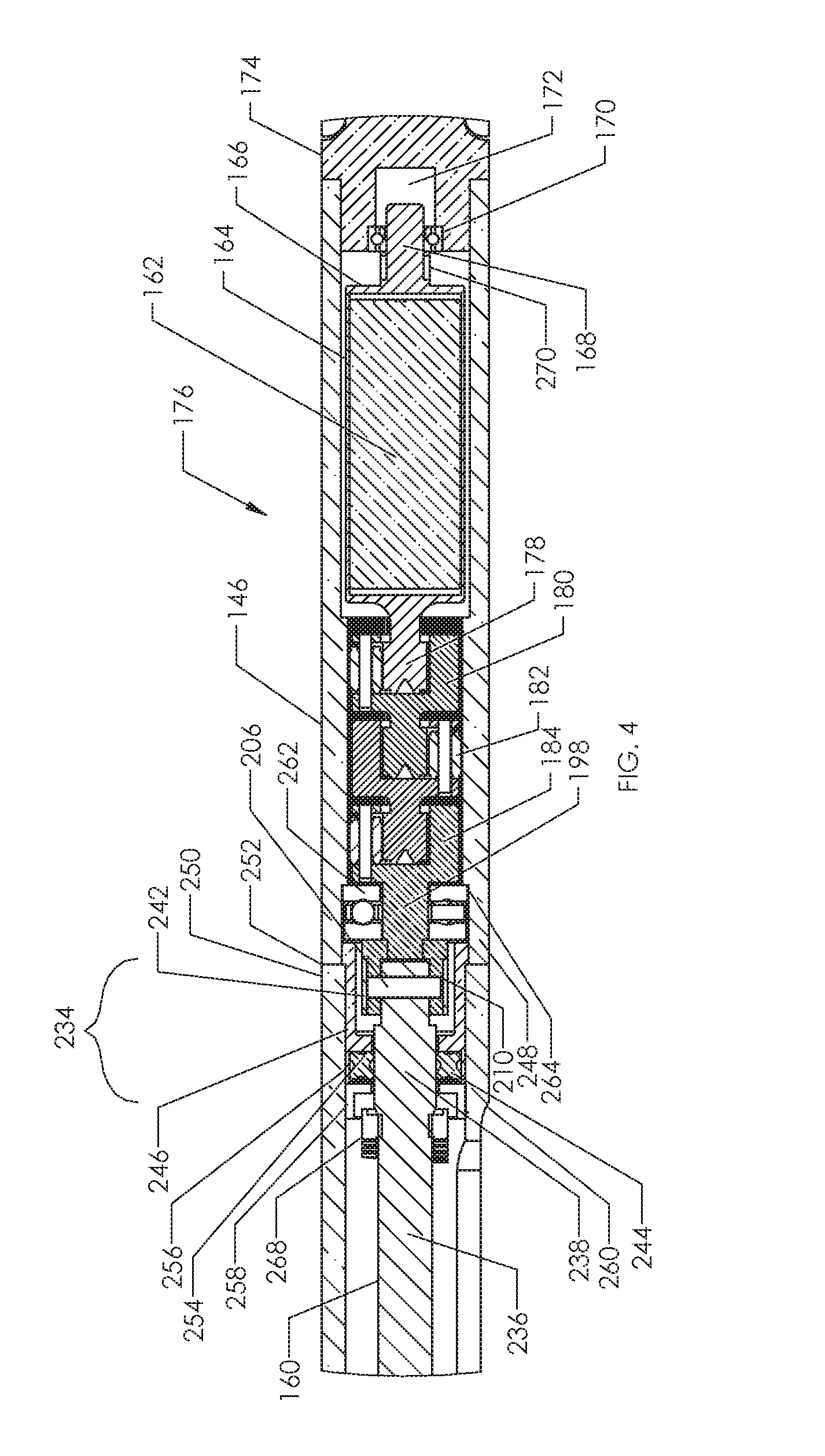Intramedullary implants for replacing lost bone
a technology of intramedullary implants and bone, which is applied in the direction of internal osteosythesis, osteosynthesis devices, fasteners, etc., can solve the problems of infected sections, segmental defects, and need to be removed
- Summary
- Abstract
- Description
- Claims
- Application Information
AI Technical Summary
Benefits of technology
Problems solved by technology
Method used
Image
Examples
Embodiment Construction
[0057]FIG. 1 illustrates an intramedullary bone transport device 100 in a “nail” configuration, having an actuator 102, a first extension rod 104 coupled to the actuator 102 at a first end 108 of the intramedullary bone transport device 100, and a second extension rod 106 coupled to the actuator 102 a second end 110 of the intramedullary bone transport device 100. First extension rod 104 and second extension rod 106 are secured to actuator 102 by set screws 112, 114. A variety of different extension rods are available, each having a particular angulation and length. In FIG. 1, first extension rod 104 is angled for use in the proximal tibia while second extension rod 106 is straight for use in the distal tibia. Multiple configurations are contemplated for tibial use, as well as antegrade use in the femur and retrograde use in the femur. Holes 116, 118, 120, 122, 124 are configured with specific diameters and orientations, in order to accommodate bone screws 126, 128, 130, 132, 134 fo...
PUM
 Login to View More
Login to View More Abstract
Description
Claims
Application Information
 Login to View More
Login to View More - R&D
- Intellectual Property
- Life Sciences
- Materials
- Tech Scout
- Unparalleled Data Quality
- Higher Quality Content
- 60% Fewer Hallucinations
Browse by: Latest US Patents, China's latest patents, Technical Efficacy Thesaurus, Application Domain, Technology Topic, Popular Technical Reports.
© 2025 PatSnap. All rights reserved.Legal|Privacy policy|Modern Slavery Act Transparency Statement|Sitemap|About US| Contact US: help@patsnap.com



